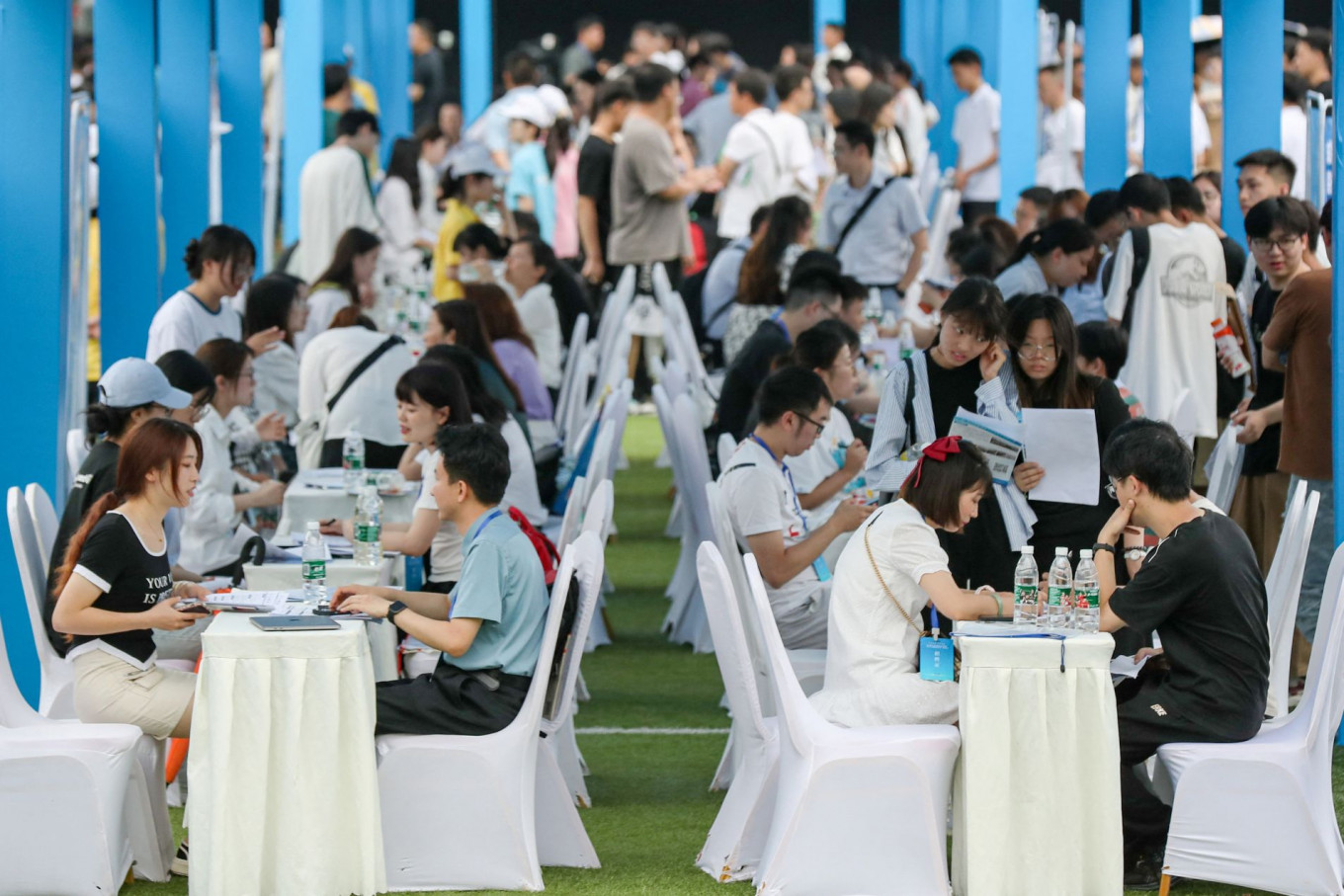Popular Reads
Top Results
Can't find what you're looking for?
View all search resultsPopular Reads
Top Results
Can't find what you're looking for?
View all search resultsBracing Indonesia's middle class for the coming AI revolution
We must also emphasize the enduring value of soft skills such as relationship intelligence, creativity, human empathy, political acumen and ethics – qualities even the most advanced AI struggles to replicate.
Change text size
Gift Premium Articles
to Anyone
A
utomation and artificial intelligence (AI) represent a profound sociotechnical transformation for Indonesia, which can transform occupational structures and notions of social mobility. As intelligent algorithms and robots integrate across arenas pivotal for the country's growing middle class, including banking, factories, logistics firms and customer-service providers, the potential for new inequalities emerges if the nation is unprepared.
As a serious task, the new government elected in the upcoming election should prioritize proactive governance and encourage adaptive strategies to safeguard the inclusive prosperity of Indonesia’s 100 million-strong consumer class through the AI transition.
A wave of automation is already palpable in the archipelago today. Machine-learning algorithms enhance the profitability of Indonesian e-commerce by more accurately predicting purchasing patterns than specialized marketers. Robotic process automation eliminates repetitive administrative tasks in IT services and business-process outsourcing offices across Java at a low cost.
Government projections indicate that 90 percent of companies will adopt such technologies by 2030. Further exponential leaps in natural language processing, computer vision, predictive analytics and cloud robotics foreshadow unprecedented white-collar disruption ahead.
Experts like McAfee and Brynjolfsson foresee the emergence of AI capabilities rapidly outpacing human proficiency across various domains, including data analysis, financial trading, legal review, inventory management, equipment monitoring, journalism and medical diagnosis within the next decade. As artificial general intelligence matures further, even roles traditionally deemed irreplaceable will not withstand machine competition.
Thus, a question emerges: How can Indonesia support the millions of middle-income urban office workers, managers and small business owners vulnerable to unemployment from automation, while harnessing AI-driven growth equitably?
The middle class rose as Indonesia embraced manufacturing and digital connectivity since the early 2000s with burgeoning consumer activity driving gross domestic product growth in major cities. However, the continuing trend of automation poses a threat as it replaces middle-skill jobs faster than new ones appear. This situation will lead to a rise in status anxiety as the stability of white-collar jobs disappears, particularly for families who have recently escaped historical hardships and achieved stability.



















